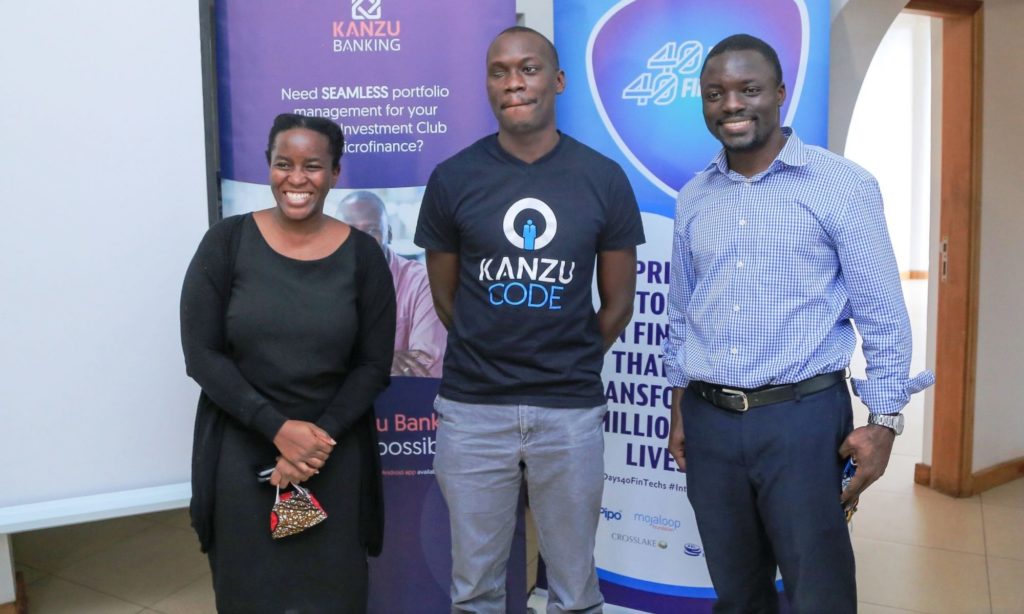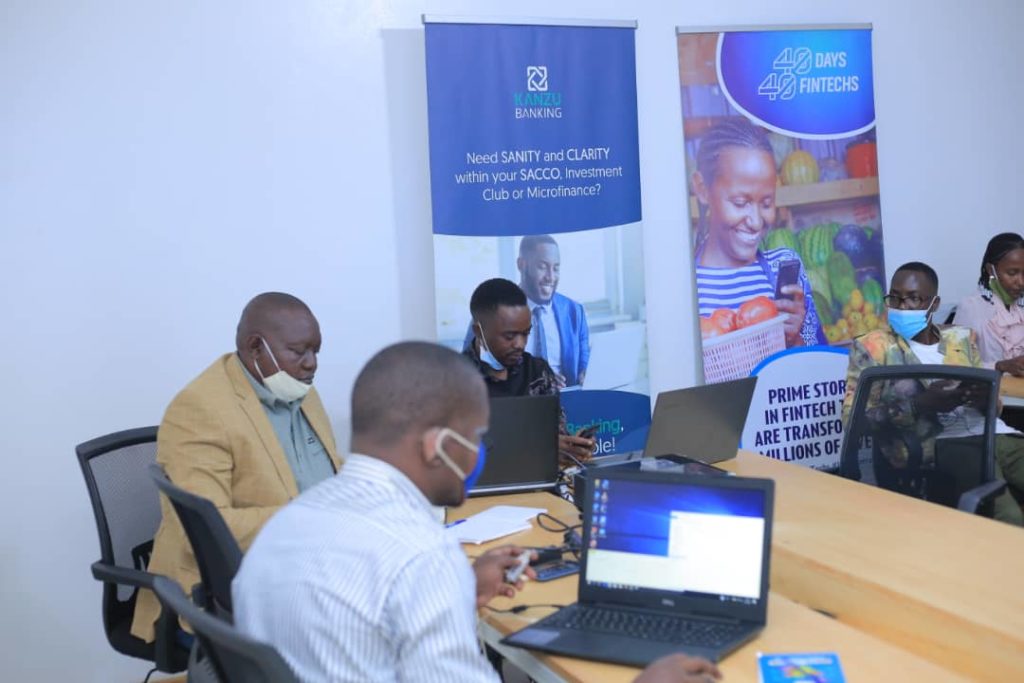Kanzu Code, a Financial Technology Company (FinTech) that builds inclusive financial tools is set for greater heights, following its enrollment in the 40-days-40-FinTechs project.
The 40 days 40 FinTechs initiative has given Kanzu Code further exposure to latest financial technology tools that will enable them develop more interoperable solutions using new technologies such as Mojaloop Open Source Software. In all; with their involvement in this project, Kanzu Code is now much more equipped to play its part in Uganda, somewhat Africa’s financial inclusion drive.
Organized by HiPipo under its Include EveryOne programme, in partnership with Crosslake Tech, ModusBox and Mojaloop Foundation, the 40-days-40-FinTechs project seeks to enable FinTechs to innovate solutions that facilitate cross-network financial transactions at minimal risks and thus enhance access to financial services.
Running for 40 days, the project will see the participating 40 FinTechs, including Kanzu Code, acquire interoperable development skills to improve access to financial services, using the Mojaloop open source software.
Speaking on day one of the 40 days 40 fintechs project at the Kanzu Code offices, Peter Kakoma, the firm’s team leader applauded HiPipo, and its partners for investing in both technology and interactions that enable developers to build accessible, reliable and affordable financial inclusion products.
“This is a big thing for our ecosystem; we are so excited about it and committed to working together with likeminded individuals in this financial inclusion journey. We cannot wait to roll it out new products supported by latest technologies such as Mojaloop and many others into our market,” Kakoma says.
The Kanzu Code Operations Assistant Joy Amanda alluded to how the participation in the project will boost their capacity to reach more people, including women, who are often financially excluded.
“Mojaloop will create an opportunity for women to access financial services and unlimited opportunities like selling their products online, getting loans and savings,” Amanda said.
On his part, Innocent Kawooya, the HiPipo CEO said that this initiative has been informed by the need to promote secure digital financial services, given their vital role in promoting financial inclusion.
“This speaks to an ecosystem which has played a great role in transforming many lives especially in Africa but very few people have paid attention to shining a light on the amazing stories and names that are doing these great things to transform lives,” Kawooya noted.
He added: “For instance, over 200,000 families in Kenya today have solar energy; thanks to mobile financial services like M-Pesa, and the fact is that they are able to pay for solar in installments using a mobile money supported M-Kopa product.”
Kawooya explained that Africa and Uganda in particular, have many amazing stories such as the Kanzu Code story, that need to be brought to the limelight.
“Kanzu Code has a team of developers; it is developing solutions to ensure that it empowers the under and un banked, some of whom are working in Saccos and other operations that allow them to start thinking of saving and investment,” he said.
Kawooya said that by promoting financial technology as a sector and the general digital financial services ecosystem in particular, will play a critical role in boosting financial inclusion in Uganda and Africa.
“Today, Africa speaks to more than 400 million mobile money wallets. That means 400 million people are banked. So this initiative among other efforts in may be another five years should cause another 400 million people to get banked thanks to solutions like Mojaloop that causes interoperability,” he said.
The initiative is expected to boost the on-going financial inclusion efforts in Uganda.
The 2018 FinScope survey puts Uganda’s formal financial inclusion at 58%. If combined with informal, Uganda’s financial inclusion jumps to 78%.
Profitability
Kawooya noted that with such collaboration, the market for FinTechs in Uganda is destined to expand and that FinTechs will become more profitable by leveraging interoperable technology to onboard more customers.
Additionally, he said that telecoms will also be able to provide more financial services, other than the Person-to-Person and withdrawals, to do more loans, savings and insurance. The government and the non-governmental organizations will also be able to serve the vulnerable in a much better way that includes everyone.
He noted that the collaboration will see them support Kanzu Code and other participating firms to get their products to the last person so as to impact lives.
Using their expansive network of global experts, HiPipo will also offer advisory services to the participating firms.


